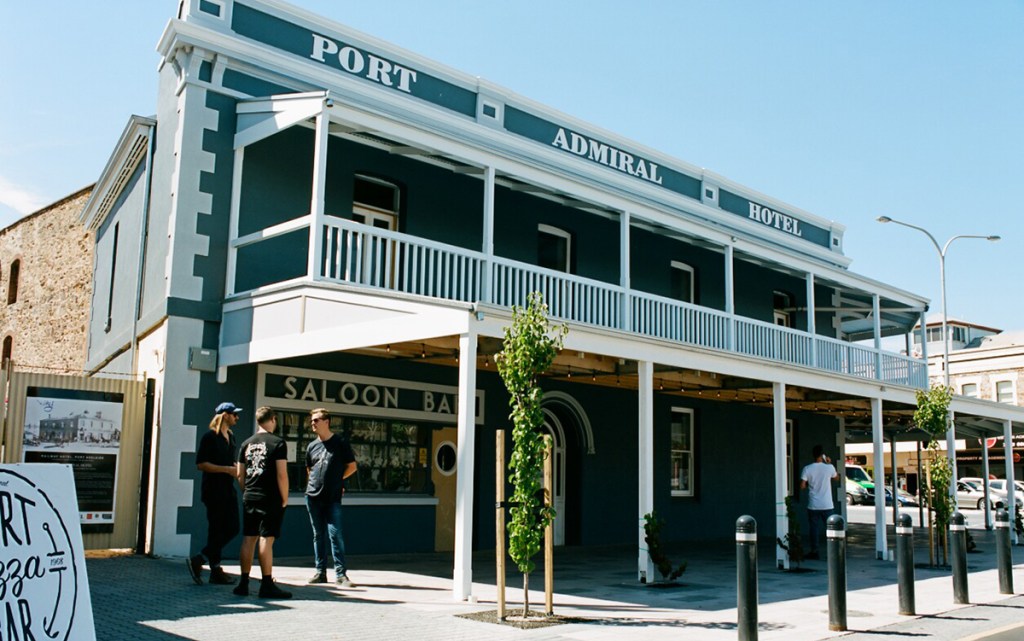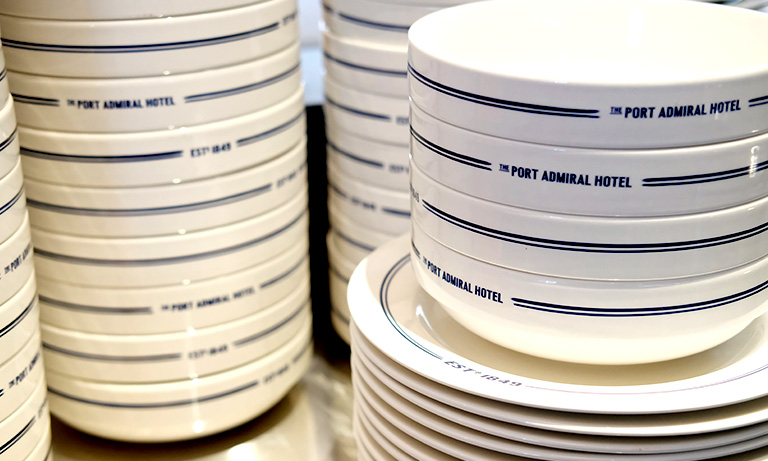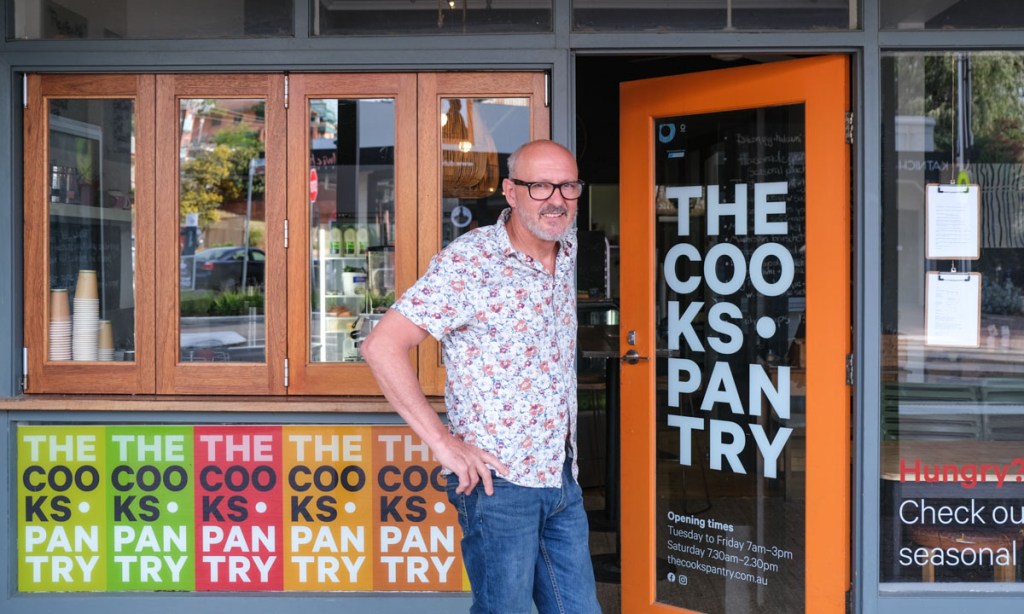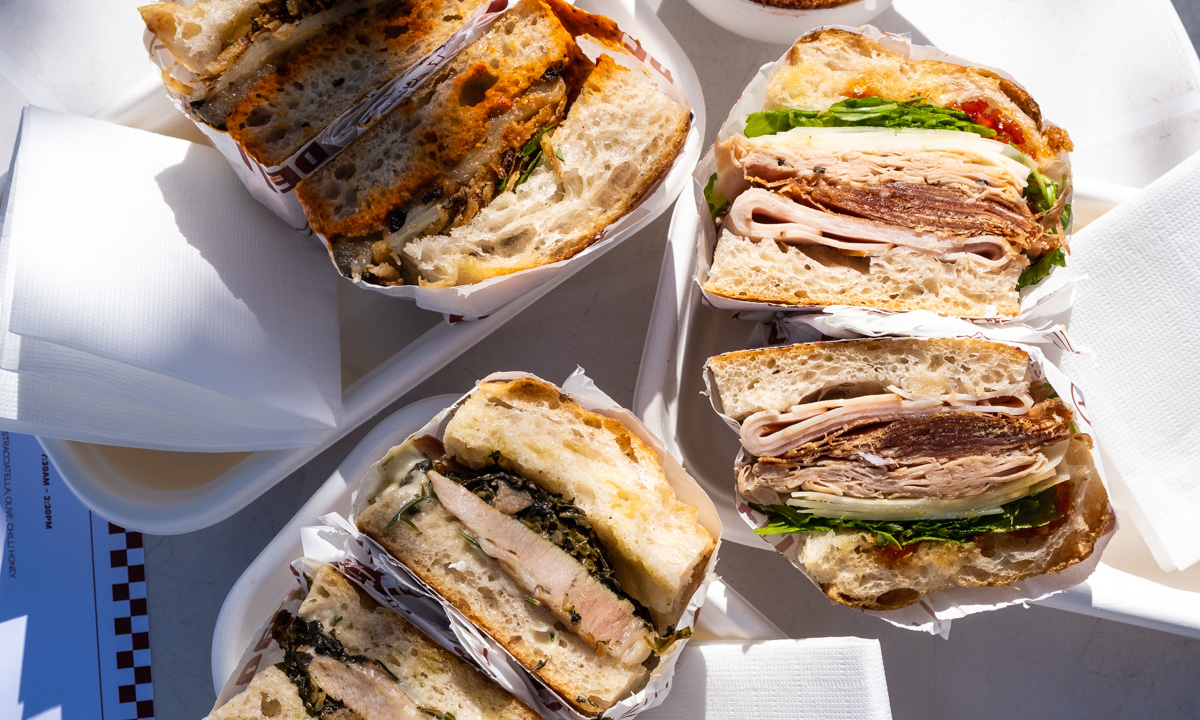‘Cost-of-doing-business crisis’: hospo owners call for payroll tax reform

Hospitality owners say payroll tax reform would help them stay afloat as small businesses reduce staff and try to keep their doors open.
When I sit down to chat with Simone Douglas, co-owner of The Duke of Brunswick Hotel and The Port Admiral Hotel, my first question is “what is your experience with payroll tax?”
She replies: “Beyond it being the bane of my existence?”
Yes, I guess. Beyond that.
For context, Simone and partner/fellow co-owner Alex Fairgrieve took on The Port Admiral Hotel 18 months ago, after it had gone into liquidation.
Simone says they “took some advice at the time about whether or not [they were] in danger of all of [their] businesses being grouped together for payroll tax purposes”, also considering Simone owns digital marketing firm AOK.
Payroll tax is a levy calculated on wages paid to employees.
“They said that based on the different shareholdings we had, that we would be fine. But it turns out that we weren’t,” Simone says.
“So we probably made that decision to take on that business and risk a significant amount of capital, being first-generation family business owners.
“We wouldn’t have made that decision had we known that we were going to cop a $3000 a month payroll tax bill just for that venue.”
Simone says “they grouped all of [their] businesses together” and “sent [them] a back tax bill for the previous year” which “pretty much wiped out [their] profit for the 22/23 year across the board”.
“So that all got paid to Revenue SA,” she says.

You might like
“It’s not a tax that takes into account whether your business made a profit or not that year,” she says.
“It’s just a tax that’s, basically, you pay your staff this many dollars, so you pay the government this many dollars.”
Businesses with wages above $1.5 million are required to pay payroll tax. Simone says “hospitality wages have gone up by close to 25 per cent”, and yet “there’s been no increase in that threshold”. The last time the payroll tax threshold was increased was in January 2019.
“The Treasurer is currently enjoying a boon or a bonus thanks to what I would call bracket creep,” she says.
“So you’ve got these small family businesses who are just out there doing the best that they can in what is a cost-of-doing-business crisis, as much as there is a cost-of-living crisis.”
The effects
As a result of this, Simone says they’ve “reduced [their] headcount significantly”. They used to employ “close to 70 people”, now they employ 40.
“The business has to make different decisions based on whether or not you can afford to run with that extra staffing, or afford to take on that person that needs training, as opposed to someone that’s experienced,” Simone says.
“It also creates a challenge with a lack of level playing field too. So if you’ve got, you know, for argument’s sake, The Prince Albert Hotel is just down the street from us. They’re probably not paying payroll tax, which means that their baseline, they’re paying five per cent less for their labour than we are, basically.
“Which means that they can afford to have greater flexibility in their pricing models.
“So again, that small family business bracket, you know, we’re not the worst of the world, but we’re incurring those same kinds of costs, but we don’t have the bargaining power, nor do we want to then screw down our local suppliers on their raw ingredient pricing.
“Because at the end of the day, we got into business to create a great space for people to come and enjoy and the grouping rules in particular were designed to catch a big corporate – so none of our businesses in and of themselves qualify to have to pay payroll tax, all of our payrolls are well below the threshold individually.”

What business owners want to see
Simone says most business owners are “calling for an increase to the threshold in line with the labour growth that has happened”.
“You’re going to see more and more businesses otherwise getting caught in that bracket creep,” she says.
“If you look at hospitality in particular, it’s one of the fastest closing industries in the nation right now in terms of the amount of businesses going into administration or liquidation.
“I think the government needs to do a better job and come up with some different tax policy that supports that small to medium sector and actually continues to create jobs instead of killing them off.
Subscribe for updates
“Because you’re not really left with much of an option these days.”
Simone says other policies that could be put in place are “12-month exemptions on new headcount” and paying payroll tax after an “EBIT test – earnings before interest and tax”.
“You’ve got a significant investment of time and resources and training to get that person up to speed,” she says on the 12-month payroll tax exemptions.
“I also think that when you are taking on trainees and apprentices, in an industry where we have a skills shortage in hospitality in particular, those trainees and apprentices should be exempt because they’re not fully fledged employees.
“We’re investing and paying for their training. We’re paying them to go to training – none of which we begrudge, we’re happy to do it – but again, we’re bearing costs on both sides.”

Jo Bodroghy of The Cooks Pantry says: “if it could be done through Covid, it should be able to be done for a term to see how much of a difference that could make”.
“They basically let businesses not pay their payroll tax for a few months and it really, really made a difference,” she says.
“There’s obviously a sort of cap on where a small business starts and not and there’s always been these grades where they’re considered ‘if you’re on this level or not’.
“I don’t feel it’s that hard for them to see [the struggles] without the big companies making a benefit from it.
“I just think that it is…so obvious that a lot of good small businesses are just saying ‘it’s just too hard’, and if it maybe was that extra there that you had, it would probably make a bit of a difference.”
The South Australian Business Chamber has been calling for a payroll tax reform for months now.
In March the Chamber recommended lifting the payroll tax threshold from $1.5 million to $2.1 million, receiving a discount of 50 per cent on the tax for businesses operating in South Australia, and relaxing the restrictions for small businesses in their first 12 months.
“When the reward for creating jobs, saving a struggling business or adding to the complexity of the state’s economy is a large tax bill, the problems with this tax are clear,” South Australian Business Chamber CEO Andrew Kay told InDaily in March.
When discussing the effects of payroll tax in March with Sam Worrall-Thompson – director of EMBR Hospitality, who co-owns Dolly, Fettle, Bar Lune, Don’s Deli, Oliveti and Spread – he told CityMag “you get punished for growth”.
“It’s fucked. It’s like 100 grand a year that we didn’t know about two years ago,” he told us.

Will the state government step in?
Treasurer Stephen Mullighan says payroll tax cuts “are not being considered”.
“SA has the second highest exemption threshold of $1.5 million in wages and one of the lowest standard tax rates at 4.95 per cent,” he says.
“After surcharge levies in other jurisdictions are considered, South Australia has the lowest standard top payroll tax rate.”
Instead, he says the Malinauskas Labor Government is providing other support for the sector through “round two of the Economic Recovery Fund, which provides grants to small businesses to purchase equipment that will reduce their energy costs”, and “significant investment in major events [like Liv Golf, Gather Round and more] to drive demand in the hospitality sector”.
Mullighan also says that $14 million for the Business Events Fund – which, according to the website, is “designed to deliver conversion of new business in situations where Australia is bidding against international competitors for the right to host the business event”, will support “more events during the winter months”.
Mullighan says there’s “$6.5 million over four years for the government’s Small Business Strategy” and “$2.3 billion over five years to address skills shortages in the economy”.
“While rising costs and slowing demand are putting pressure on South Australian hospitality businesses, through the year, retail turnover in cafes, restaurants and takeaway food services grew by 2.2 per cent in South Australia, according to the ABS,” he says.





